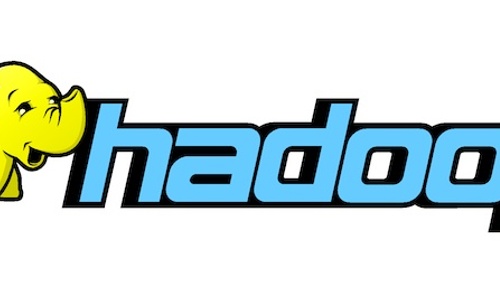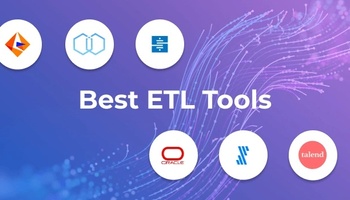If you need a tool that can extract, transform, and load data, then Hadoop isn’t the right option for you. That doesn’t mean that you shouldn’t consider making Hadoop a part of your ETL process, though. Adding Apache Hadoop to your process could help increase speeds and ensure that you get accurate results.
What Is an ETL Tool?
ETL tools usually include software like:
- Integrate.io
- Alooma
- Stitch
- Talend
- AWS Glue
You can learn more about the top 7 ETL tools for 2020 by reading Integrate.io’s April blog post. To summarize, an ETL tool contains features that let it pull data from a source, transform the data in some way, and load the transformed data to a destination.
The best ETL tools will let you get information from multiple databases at the same time. ETL tools with no-code and low-code environments make it easy for people to process the data they need without learning how to write code. Many users prefer low-code and no-code platforms because they can create visual data pipelines without spending time writing lines of SQL and other code.
Plus, no-code and low-code ETL tools let people without technical backgrounds manipulate data. For example, a marketing team can access the data needed to spot e-commerce trends without having to pull a developer into the project.
What Is Apache Hadoop?
Hadoop is a software library with five modules. When working with an ETL tool, you will most likely use Hadoop MapReduce and Hadoop Distributed File System (HDFS). For information on Integrate.io's native Hadoop HDFS connector, visit our Integration page.
Hadoop MapReduce sorts data according to your needs and generates a map of the data that helps users and ETL tools know where to find information. HDFS stores data that other Hadoop applications use.
It’s important to note that Hadoop is an open-source, cloud-based application suite that does not live on your devices. You can add it to practically any server, including public cloud servers that you rent to store data.
Some Benefits of Using Hadoop
If you already have Integrate.io or a similar ETL tool, you might not see the point in using Hadoop. After all, Integrate.io also does a good job identifying and sorting data. While that’s true, Hadoop can still benefit Integrate.io users.
Some of the most important benefits of Hadoop include:
- Identifying risks before you lose access to data or your data gets corrupted.
- Improving performance to prevent hardware failure.
- Identifying the warning signs common of security breaches.
- Organizing information in the database before moving it to your ETL tool.
- Increasing the speed of big data manipulation and transfer projects.
- Integrating various data types before moving them to your ETL.
Hadoop Isn’t Just for Big Data
Organizations have diverse data needs. If you manage a popular e-commerce site, then you might move thousands of data points through your ETL every day. If you run a small business, though, you might only use your ETL tool once a week or even once a month.
Anyone working with big data will recognize the advantages of using Hadoop. You can’t ignore a tool that improves accuracy and saves you time.
If you don’t process a lot of data, you might assume that Hadoop can’t help you much. You should reconsider that position.
Small Data Seems Pretty Big to Some Tools
There are plenty of reasons to process small data with Hadoop. First, what you consider small data may seem overwhelming to some of your tools. Integrate.io can process massive amounts of information, but some ETL tools don’t excel in that area. By adding Hadoop to your virtual server, you improve your data’s efficiency and veracity.
Hadoop Integrates Various Data Types
Hadoop can also help you integrate different data types. A small business may not generate a lot of data, but you almost certainly have data in various formats. Hadoop can integrate everything from your social media data to your web server log files. If you use a CRM, then Hadoop is practically essential.
Hadoop Can Help You Save Time
Small amounts of data don’t take as much time to process as large amounts, but it still takes time. Why not save an hour by letting Hadoop MapReduce process data in parallel while you extract information to your ETL?
You Never Know How Your Data Needs Will Change
Currently, you may not think that you use enough data to worry about adding Hadoop to your process. Maybe you're right. You don’t know what the future holds for your data, though. By next year, you could have doubled or tripled the amount of data that you collect. Once you reach that point, you will scramble to find tools that make your job easier.
Get ahead of your business and data growth by learning how to use Hadoop now. You might not have time next year when you discover how much more data you need to manage.
Hadoop Isn’t an ETL Tool - It’s an ETL Helper
It doesn’t make much sense to call Hadoop an ETL tool because it cannot perform the same functions as Integrate.io and other popular ETL platforms. Hadoop isn’t an ETL tool, but it can help you manage your ETL projects.
You don’t have anything to lose by trying Hadoop. It won’t take up much room on your servers, and Apache has plenty of resources to help you get started.
Hadoop isn’t the only ETL helper to consider. Apache Spark can also help you manage and process data. It tends to work best for small data sets, but you might want to try it.
If you’re not sure which ETL tools and ETL helpers you should use, reach out to Integrate.io to talk with an expert who can help you compare your options. If you’re not already an Integrate.io client, then you can contact us to request a demo and experience the platform for yourself.











